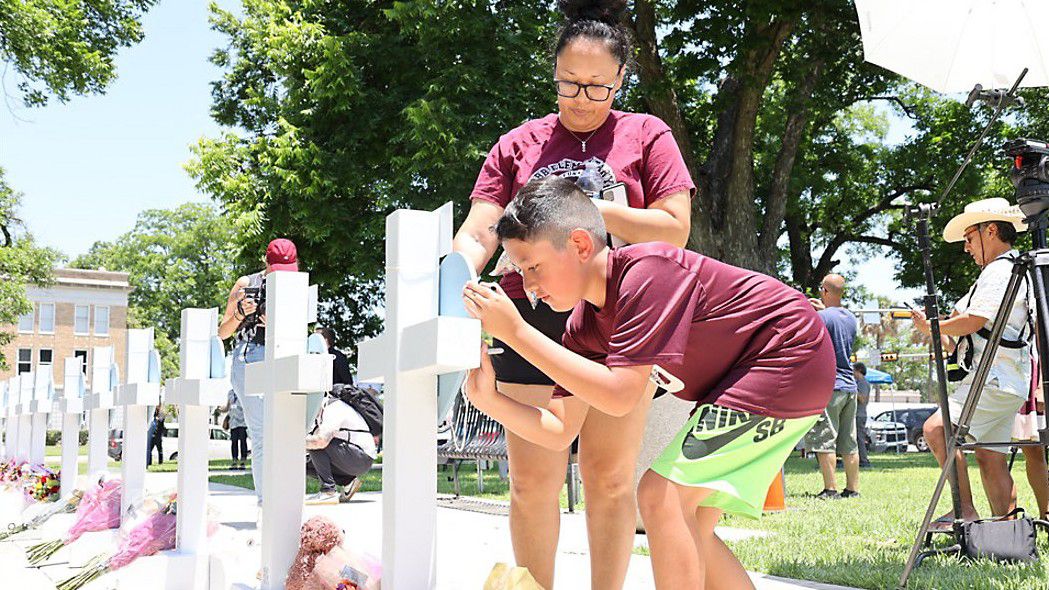TEXAS — House lawmakers – already scheduled to discuss youth health and safety on Thursday – grappled with the idea of how Texas can effectively deploy mental health resources to students.
The House Select Committee on Youth Health & Safety was not scheduled to discuss this week’s mass shooting in Uvalde. Chair Rep. J.M. Lozano, R-Kingsville, expects to schedule a future hearing. But the topic of strengthening mental health interventions was on the agenda, and questions from lawmakers like Rep. James Frank, R-Wichita Falls, and Rep. Lacey Hull, R-Houston, highlighted how lawmakers are trying to balance interventions and parental rights.
Republicans – especially those in more conservative districts – have hesitated to embrace models that would put health care and mental health care directly on a school campus, fearful parents would be cut out of the process.
“Do y’all have any safety measure in place to make sure that parents are included? I think that is one of my grave concerns with having mental health care provided in the school,” Frank asked Lindsey Garner of Tarrant County Communities in Schools. “I think we should be paying for mental health care, but I am much more comfortable having it in a traditional clinical setting because that ensures parental involvement.”
Two mental health delivery models were presented at the hearing: an all-inclusive health clinic underwritten by the St. David’s Foundation and Communities in Schools. Communities in Schools serves more than 105,000 Texas students with wrap-around services on their home campus, including a case manager who can match students with resources in the community.
Students may have an initial Communities in Schools risk assessment, but no mental health services are arranged without the parents’ permission, Garner said. Even that step can be alarming to some lawmakers. Hull asked whether a parent refusing services from Communities in Schools could lead to being reported to Child Protective Services.
Garner said CIS makes every attempt to provide parents with options. Providing families with support is the goal, not putting children into the welfare system, she said.
“There are instances where CPS may become involved if a child is in need of services that are being recommended, and the parent is not acting in the child’s best interest, especially if there’s the potential of harm,” Garner told Hull.
Texas does make school personnel mandatory reporters of potential child abuse. Failure to report suspected child abuse or neglect is a criminal offense.
Garner pointed out Texas was far from well-staffed for mental health issues. Pre-pandemic, it was estimated Tarrant County needed 47 mental health professionals for every 100,000 children. At the time, Tarrant County had no more than four, Garner said.
The mental health effects from the pandemic will linger for at least a decade, Garner said.
“I believe we need to be looking at least over the next 10 years to see how we can ramp up the accessibility of mental health supports and making them easily accessible – no transportation needed and at no cost to these students and families,” Garner said. “The ideal place to house these is directly in the schools, where they can be seen at the child’s convenience.”
The other issue the committee raised was the current model of health care payments. People pay for a service in health care; they rarely pay for wellness. Lozano talked about his own father, a doctor who still practices in rural Texas.
“He would tell me the issues he saw on health care – how little time he had to spend with each patient. He would always complaint to me about how he knew that many physicians are just writing a script, thank you, bye,” Lozano said. “They need therapy. They need counseling. They need to talk to someone, and in rural areas, who are you going to find for that?”
Frank agreed that rural areas rarely have resources like Federally Qualified Health Centers, which are funded to provide comprehensive health care in underserved areas.
“I do think the payment system is part of the problem and part of the reason and part of the reason for your dad’s frustration,” Frank said, addressing Lozano. “We pay for procedures. We do not pay for a doctor to sit there and talk to you, which is really (an issue for) a different (House) committee.”
Amy Einhorn of the St David’s Foundation said the Taylor community clinic takes a broader approach to health care.
“The payment mechanism currently is per-visit per-person,” Einhorn said. “We, as a community, change that approach to paying for better health outcomes. I think there’s the opportunity to save some money and improve the health of people overall.”
Rep. Ann Johnson, D-Houston, agreed with Frank's assessment, and credited the St. David’s Community Clinic in Taylor for taking a more inclusive approach.
“When we think about physicians, you’re talking about disease remediation and acute care, as opposed to what you’re talking about here, which is effective prevention leading to positive health outcomes,” Johnson said. “Thank you for what you’re doing in this collaboration.”



